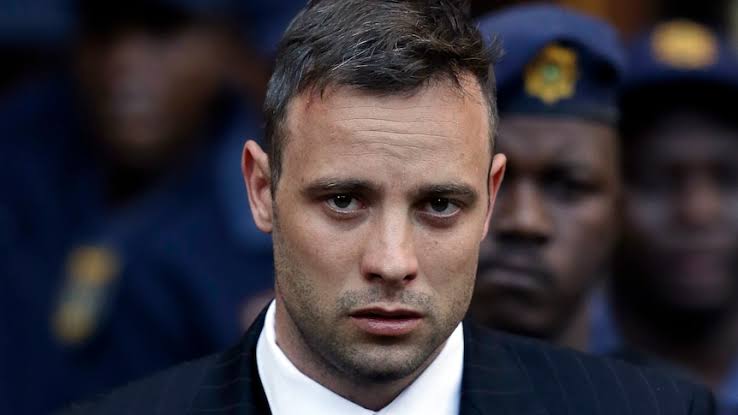South Africa’s former Olympic runner Oscar Pistorius has been granted early release from prison, a decade after the tragic shooting of his girlfriend, Reeva Steenkamp.
Gatekeepers News reports that the parole board, responsible for evaluating Pistorius’ fitness for social reintegration, determined that he would be placed on parole starting January 5, according to the department of correctional services.
“Mr Pistorius will complete the remainder of the sentence in the system of community corrections and will be subjected to supervision in compliance with parole conditions until his sentence expires”.
This hearing held at a correctional centre outside Pretoria, marked Pistorius’s second attempt at parole in less than eight months.
He lost a first bid in March when the board found Pistorius had not completed the minimum detention period required to be let out. The Constitutional Court last month ruled that was a mistake, paving the way for a new hearing.
Pistorius, globally known as the “Blade Runner” for his carbon-fibre prosthetics, was found guilty of murdering model Reeva Steenkamp in 2013.
The crime captivated the world as Pistorius fired four shots through the bathroom door of his heavily secured Pretoria home in the early hours of Valentine’s Day.
Pistorius pleaded not guilty and claimed to have mistaken Steenkamp for a burglar. He received a 13-year jail sentence in 2017 after a lengthy trial and multiple appeals.
Steenkamp’s mother, June Steenkamp, told the parole hearing that she did not believe the ex-athlete was rehabilitated for he had not shown true remorse.
“Rehabilitation requires someone to engage honestly, with the full truth of his crime and the consequences thereof. Nobody can claim to have remorse if they’re not able to engage fully with the truth,” June Steenkamp said in a statement to the board.
Despite her doubts, she did not oppose Pistorius’s parole, as conveyed by a family spokesman to the board.
June Steenkamp, who was not present at the parole hearing, forgave Pistorius long ago but maintained her disbelief in his version of events.
“I do not believe Oscar’s version,” she said in her submission to the board that was read to the media outside the detention centre by a family spokesman.
“My dear child screamed for her life loud enough for the neighbours to hear her. I do not know what gave rise to his choice to shoot through a closed door four times at somebody with hollow-point ammunition when I believe he knew it was Reeva.”
Nevertheless, she said she forgave the former sprinter “long ago, as I knew most certainly that I would not be able to survive if I had to cling to my anger.”
As part of Pistorius’s rehabilitation efforts, he met with Steenkamp’s parents last year in a process aimed at making inmates acknowledge the harm caused.
Despite the parole decision, the case continues to elicit strong emotions, with Steenkamp’s mother conveying the toll it has taken on her and the recent passing of Steenkamp’s father, Barry in September aged 80, whom she believes died of a broken heart.
Offenders in South Africa are automatically eligible for parole consideration after serving half of their sentence.
The board, normally made up of correctional services and community members, assesses whether an inmate still poses a danger to society.This takes into account the seriousness of the offence as well as Oscar Pistorius’ behaviour behind bars.
The granting of parole typically comes with conditions, including monitoring and reporting to a community correction center.







